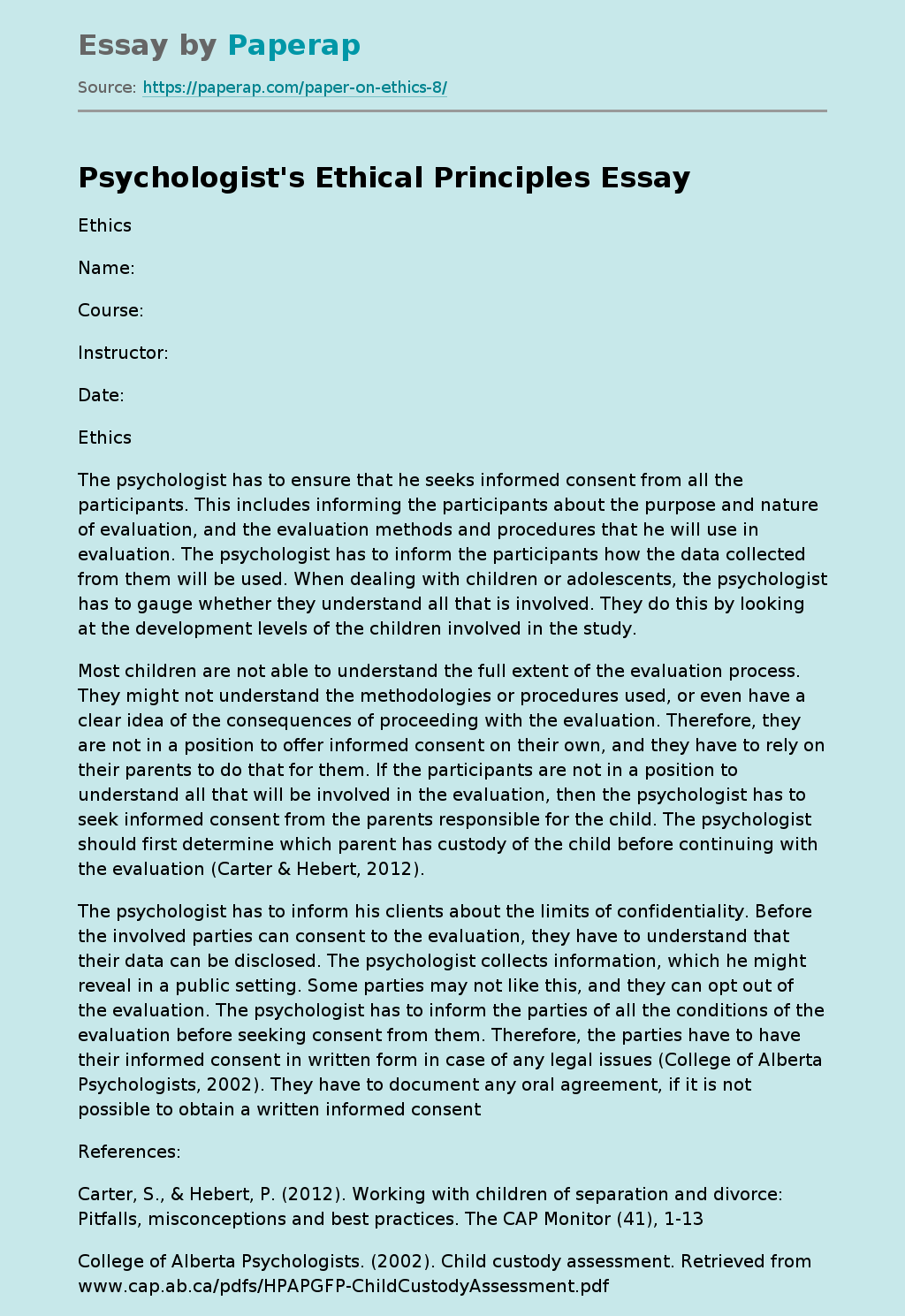Psychologist's Ethical Principles: What Are They?
The psychologist has to ensure that he seeks informed consent from all the participants. This includes informing the participants about the purpose and nature of evaluation, and the evaluation methods and procedures that he will use in evaluation. The psychologist has to inform the participants how the data collected from them will be used. When dealing with children or adolescents, the psychologist has to gauge whether they understand all that is involved. They do this by looking at the development levels of the children involved in the study.
Most children are not able to understand the full extent of the evaluation process. They might not understand the methodologies or procedures used, or even have a clear idea of the consequences of proceeding with the evaluation. Therefore, they are not in a position to offer informed consent on their own, and they have to rely on their parents to do that for them. If the participants are not in a position to understand all that will be involved in the evaluation, then the psychologist has to seek informed consent from the parents responsible for the child.
The psychologist should first determine which parent has custody of the child before continuing with the evaluation (Carter & Hebert, 2012).
The psychologist has to inform his clients about the limits of confidentiality. Before the involved parties can consent to the evaluation, they have to understand that their data can be disclosed. The psychologist collects information, which he might reveal in a public setting. Some parties may not like this, and they can opt out of the evaluation.
The psychologist has to inform the parties of all the conditions of the evaluation before seeking consent from them. Therefore, the parties have to have their informed consent in written form in case of any legal issues (College of Alberta Psychologists, 2002). They have to document any oral agreement, if it is not possible to obtain a written informed consent.
References
- Carter, S., & Hebert, P. (2012). Working with children of separation and divorce: Pitfalls, misconceptions and best practices. The CAP Monitor (41), 1-13.
- College of Alberta Psychologists. (2002). Child custody assessment. Retrieved from www.cap.ab.ca/pdfs/HPAPGFP-ChildCustodyAssessment.pdf.
Psychologist's Ethical Principles: What Are They?. (2019, Feb 02). Retrieved from https://paperap.com/paper-on-ethics-8/

